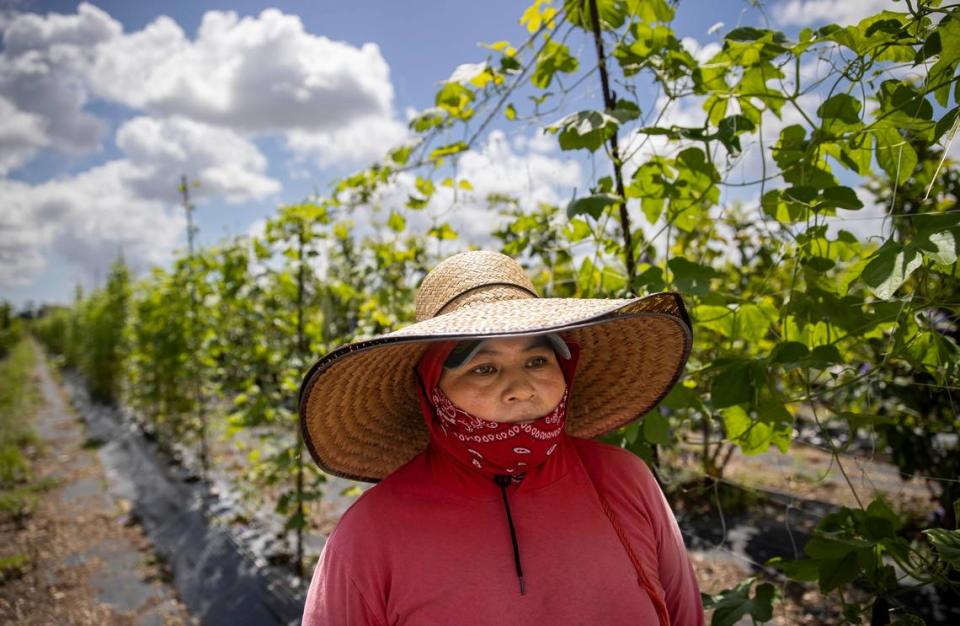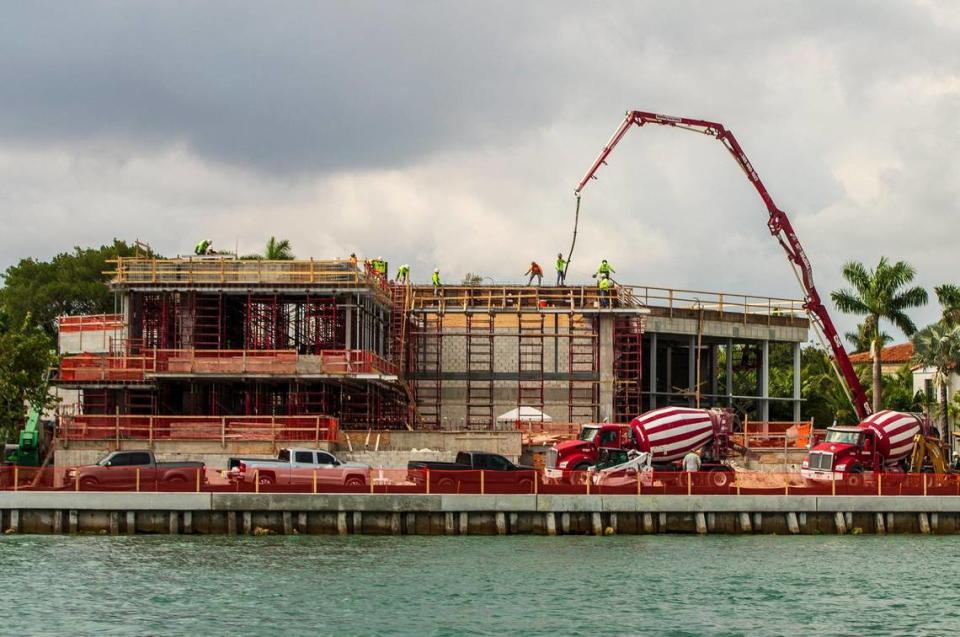Lawmakers poised to kill Miami-Dade effort to pass heat protections for outdoor workers

Miami-Dade’s fledgling proposal to protect some of its outdoor workers from extreme heat is likely dead — even before county commissioners have a chance to vote on it later this month.
State lawmakers are poised to kill it in final votes that could come as early as Wednesday — only the latest “pre-emption” power play from Tallahassee.
After the hottest summer in recorded history, Miami-Dade introduced a first-of-its-kind policy to require employers to provide water, rest and shade to outdoor workers on hot days. It was quickly watered down and eventually delayed after a push from powerful agricultural and real estate interests — some of which turned to pressuring legislators to do the same, and not just in Miami-Dade but across the state.
Earlier this year, legislators introduced two very different bills this session to pre-empt Miami-Dade’s heat exposure policy, with the House version going even further by blocking local wage regulations. But in the final week of Florida’s 60-day legislative session, the focus has narrowed just to heat protections.
On Tuesday, the Florida Senate voted to remove language from the bill that would have blocked local governments from requiring their contractors to pay employees anything above the state’s minimum wage. Eleven municipalities — including Broward, Miami-Dade and Palm Beach counties as well as the cities of Miami Beach and St. Petersburg — would have been impacted.
But the Senate voted to keep language that seeks to prevent local governments from adopting rules that would tell employers how to protect workers from heat exposure.

Sen. Jay Trumbull, R-Panama City, the sponsor of the bill, said the goal is to have the entire state follow the heat exposure guidelines set by the federal Occupational Safety and Health Administration, also known as OSHA. He said those should be the “overarching standard for the state.”
Trumbull said federal regulators have been “proactive” in punishing Florida employers that do not follow those guidelines, and said he was confident that would be enough to “keep bad actors at bay.”
OSHA has levied tens of thousands of dollars in fines on five Florida employers since 2020 after one of their employees died due to heat-related issues, and fined another four employers when their employees were hospitalized with heat-related illnesses. The agency rarely cites employers for unsafe heat conditions before one of their workers is injured or killed.
But critics say OSHA doesn’t do enough to protect outdoor workers. Workers testified in front of legislators about instances where they were denied water breaks or shade, which are not explicitly required under federal or state law.
Oscar Londoño, executive director of WeCount!, the Miami-based worker advocacy group that initiated the push for heat protections, said if Gov. Ron DeSantis signs this pre-emption into law, his organization will be forced to get more creative in the strategies it uses to protect their members.
“We hope that Republicans who will be voting on it remember the value of these essential workers. But even if they decide to preempt these local heat protections, our campaign moves forward,” he said. We understand that every single year it’s going to get hotter and hotter, that the government can’t avoid this problem for too long. Many more workers are going to get sick and die on the job here in FL in the absence of any local or state heat protections.”


Senate Democrats took issue with the preemption effort, noting some local governments want to act on the issue.
“We live in a very hot state,” Sen. Tina Polksy, D-Boca Raton said. If Miami-Dade wants to have an ordinance, she argued the state should let them do it. “Let’s let a local government that has a hotter climate make decisions on what is best for them.”
Miami-Dade County Commissioner Marleine Bastien, who co-sponsored the original legislation, said she was “gravely disappointed” with the Legislature’s pending move and she was unsure of what would happen to her policy, which was set to be re-heard by commissioners this month.
“I’m disappointed by the heat exposure preemption because I believe we have a responsibility to protect our outdoor workers. We as Miami-Dade policymakers have the right and the duty to pass legislation to protect our essential workers,” she said.
Sen. Geraldine Thompson, D-Orlando, took issue with the state treating workers differently than student-athletes when it comes to how the state protects individuals from heat exposure.
Under Florida law, schools are required to have protocols in place for heat illness to prevent heat-related illnesses in young athletes. Among other things, schools are required to have cooling zones with cold-water immersion tubs that can reduce core body temperatures in case of heat illness and are to ensure that students are drinking enough electrolytes.
“I think that employees who are outside or inside who are exposed to extreme heat are as valuable as athletes,” Thompson said.
Ashley Miznazi is a climate change reporter for the Miami Herald funded by the Lynn and Louis Wolfson II Family Foundation in partnership with Journalism Funding Partners.


